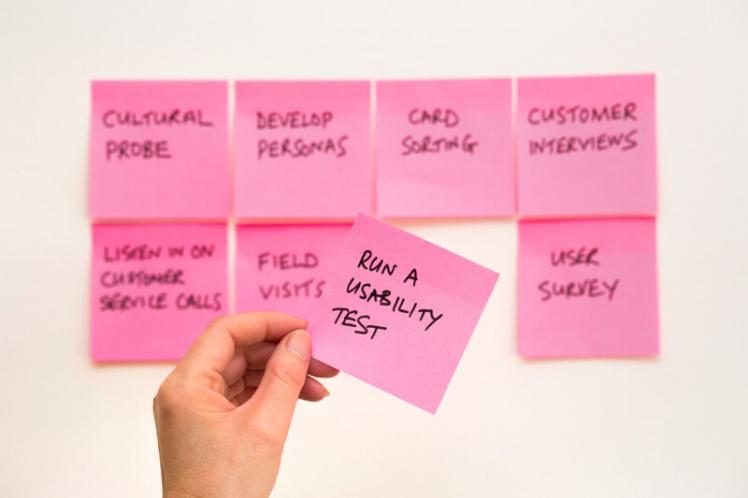How to Get into User Research: Spotlight on Stephanie Marsh

You can study subjects like user experience design (UXD), user centred design (UCD) and human-computer interaction (HCI) academically, and although it is still more common to find courses at postgraduate level, undergraduate courses are popping up.
User research is often a part of these courses or part of a human-computer interaction module in computer science degrees. As the academic pathways for user research and user experience (UX) are yet to be as established as more ‘traditional’ subjects, you’ll find practitioners have highly diverse backgrounds, seemingly unrelated to the field. The academic pathway is great if you can take it, but if that’s not an option, it doesn’t mean learning to do user research is out of reach for you. I taught myself these skills by reading textbooks and practising (the fact that I did it during doctoral research, is beside the point).
I was an environmental geologist when I started out in user research. My plan was to help the world prepare for, and mitigate, natural disasters, in part by using highly interactive software. But my life changed forever when I started noticing how terrible that software was. From then on, I needed to know exactly why and how the development process could go so horribly wrong. I can actually pinpoint the exact moment everything changed; I was looking at a map of the UK covered in 3D pie charts and not being able to understand anything useful from it. So I spent 4 years thinking about what good user research is, and what makes for bad user research.
No one else in the field of geovisualization was thinking about this at the time.
But, at this stage, at the start of my PhD, I knew nothing of HCI, UX or user research.
After getting my PhD, I left academia and started using user research methods, in earnest (and anger) in the real world. I have worked for companies that are ‘user research evangelists’ and others who don’t have a clue. In some cases, I’ve had to build understanding and advocacy from the ground up, at the same time as delivering results. I started my user research journey in 2003, and I’m still continuing to learn as I deliver today. There will always be new things to learn about the basics as well as developments in the field, and related fields that you can borrow from.
For example, I recently learnt about Liberating Structures from a colleague and now have started using them in my work. I still read books on the subject and related subjects, I read blogs, I talk to colleagues, go to meet-ups to continue increasing the breadth and depth of my knowledge.
The trick is to start small. Do some reading, trial what you’ve learnt on something low risk - and just keep going. I wrote User Research mostly with people learning on the job in mind, who are just starting their user research journey. I am now almost 15 years into my user research journey and I hope I am always learning on the job – as you can too.




